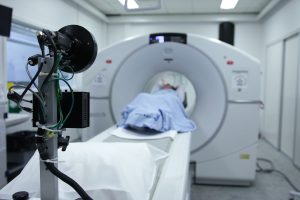 If you or a loved one is a victim of a car accident that left you with a traumatic brain injury, you might be wondering how long it will take to recover. Everyone is different and recovery depends on the severity of the injury. Additionally, the road to recovery from a TBI is not a smooth one; you might show lots of improvement one moment and the next your progress slows down.
If you or a loved one is a victim of a car accident that left you with a traumatic brain injury, you might be wondering how long it will take to recover. Everyone is different and recovery depends on the severity of the injury. Additionally, the road to recovery from a TBI is not a smooth one; you might show lots of improvement one moment and the next your progress slows down.
In order for you to recover maximum compensation, you need to reach maximum medical improvement. This means that you have reached a state where your condition cannot be improved any further. At this point, your Fall River brain Injury attorney will be in a better position to negotiate a better deal for you.
How Long Does it Take to Recover from a TBI?
Within the first six months, you will experience significant improvements before the progression slows down. Over the next two years, there will be continual improvements but they won’t be as significant as the ones you will experience during the first six months of recovery. Severe symptoms like swelling and bleeding will reduce but the damage to the nerves is still present.
The severity of an injury may make it impossible for a patient to fully recover and doctors cannot accurately predict the length of time it takes someone to recover or the long term effects of TBI.
What are the Physical Effects of a Traumatic Brain Injury?
The good news is that not everyone that suffers from TBI suffers major physical disabilities. If you do experience any kind of impairment, you can expect your condition to improve through physical therapy within a few months.
If a loved one suffered from multiple concussions, they may experience problems with coordination and balance. The symptoms might be permanent or they might take a long time to improve.
TBI can also cause epileptic seizures in some people. This is a serious condition and doctors prescribe medicine to guard against it.
What are the Cognitive Effects of Traumatic Brain Injury?
You might experience trouble paying attention, concentrating, or remembering new information. You might also notice that a loved one has problems with their speech or they lack problem-solving abilities. These are all common signs of cognitive impairment.
Behavioral Effects of Traumatic Brain Injury
If after a head injury you or a loved one experiences emotional behavior that displays as any of the below symptoms then their behavior may have been triggered by the TBI:
- Risky behavior
- Apathy
- Impulsive behavior
- Anxiety
- Depression
- Fits of anger
The left side of our brain controls logical functioning and language. It also controls our emotions such as anger, pride, happiness, etc. If this side of the brain is damaged, it can result in:
- Impaired logic
- Verbal memory issues
- Changes in speech
- Sequencing difficulties
- Difficulty expressing and understanding spoken and written language
What are the Different Stages of Severe TBI?
Coma
In this stage, the patient is completely unconscious and they cannot be awakened. They also do not respond to sounds or touch.
Vegetative state
A vegetative state doesn’t imply that the person is a “vegetable”; their brain is still able to control automatic functions such as digestion, breathing, and heart function. In this stage, the patient is still unconscious but may be awake sometimes. They can react to sounds or touch but they are not in control of these responses. This means they cannot engage in purposeful behavior and they aren’t aware of their surroundings.
Minimally conscious state
At this stage, the patient begins to regain consciousness and may start becoming aware of their surroundings. They may even engage in purposeful behavior from time to time such as focusing on a moving object or trying to use an object such as a spoon.
Recovery from a minimally conscious state
Patients in this state may be able to engage in consistent communication. They may also be able to perform simple tasks and follow instructions.
Post-traumatic confusional state
Some patients may enter a state of confusion and may have trouble forming new memories once they regain consciousness. They may not be able to remember what happened or recognize people they know. They may become restless or agitated and may sleep a lot during the day but find it hard to sleep at night.
Seek an Experienced Fall River Brain Injury Attorney
If your loved one suffered a traumatic brain injury in Fall River, MA, our team of Fall River Brain Injury attorneys can help. Call us at 508-676-0001 to schedule your free consultation.


